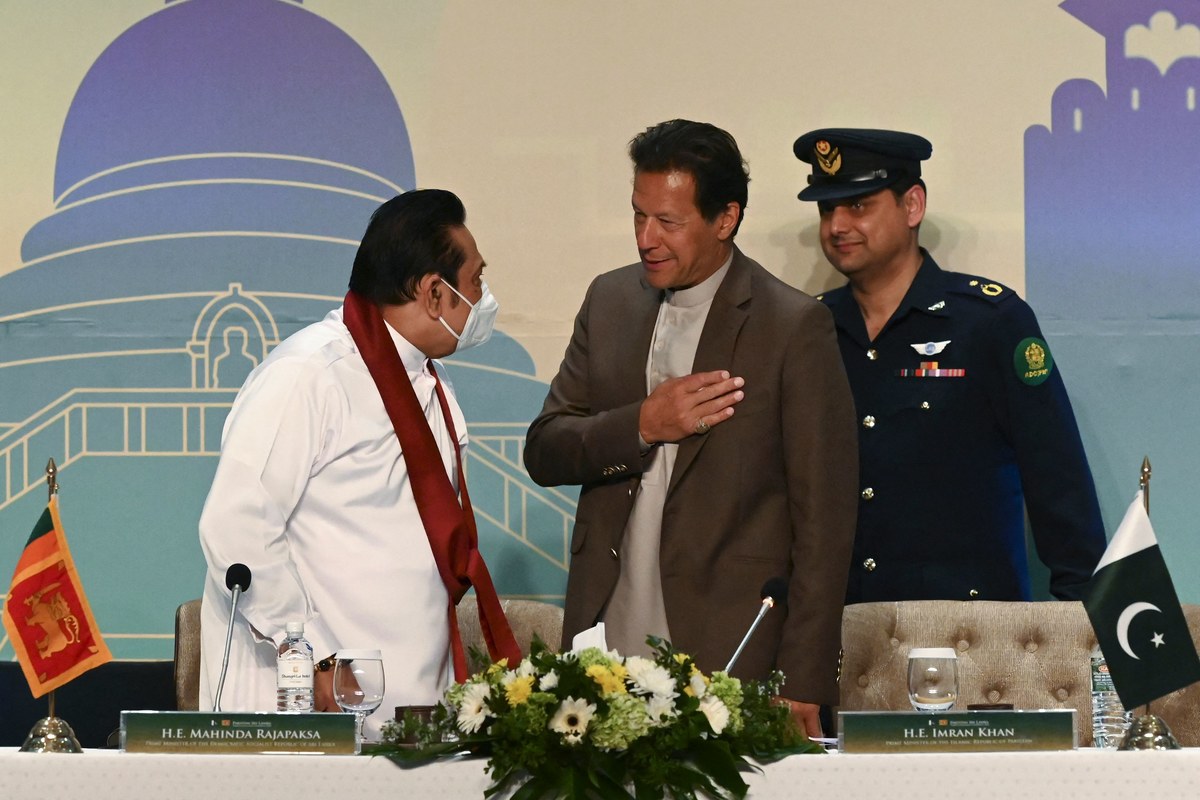COLOMBO: Prime Minister Imran Khan during a speech in Colombo on Wednesday invited Sri Lankan political and business leaders to explore Pakistan's ancient Buddhist sites of the Gandhara civilization.
Khan arrived in Colombo on Tuesday afternoon. He was received by Prime Minister Mahinda Rajapaksa with whom he held extensive consultations at Temple Trees, the Lankan prime minister’s official residence, followed by delegation-level talks between the two sides to boost bilateral trade and investment.

Pakistan's Prime Minister Imran Khan (C) and his Sri Lankan counterpart Mahinda Rajapaksa (L) gesture at the end of the Trade and Investments conference in Colombo on February 24, 2021 on the second day of Khan's official visit to Sri Lanka. (AFP)
On Wednesday, in talks with President Gotabaya Rajapaksa and during a speech at the Pakistan-Sri Lanka Trade and Investment Conference, the Pakistani prime minister highlighted Buddhist heritage sites of the Gandhara civilization that existed in northwestern Pakistan from the middle of the first millennium BCE to the beginning of the second millennium CE.
"For people in Sri Lanka, what is of great interest is the Gandhara Buddhist civilization ... We have discovered various new sites for tourists to visit Pakistan," Khan told delegates in Colombo.
"The findings will be of interest to Sri Lankan tourists who go to historical places," he said, adding that they include a 40-foot sleeping Buddha statue.
Buddhists account for more than 70 percent of Sri Lanka’s 22 million population. Ethnic minority Tamils, who are mainly Hindu, comprise about 15 percent and 9 percent are Muslims.
Khan said his Colombo visit was aimed at strengthening bilateral relations, especially trade and economic ties through enhanced connectivity, and that Sri Lanka could benefit from the $62 billion China Pakistan Economic Corridor (CPEC) project of infrastructure and energy projects.
"Pakistan is part of the One Belt and Road initiative of China and CPEC is one of its flagship programs, and it means connectivity and it would help enhance Sri Lanka's connectivity right up to Central Asia," he said.
In a joint communique after the visit, Pakistan and Sri Lanka announced they had signed five memorandums of understanding to increase cooperation in the field of tourism, investment, chemical and biological sciences, industrial technology and education.
They said they had also "stressed the importance of realizing the goal of achieving US$1 billion bilateral trade target" and agreed to deepen their free-trade agreement (FTA) which came into force in 2005.
Despite the FTA, the two-way trade currently stands at only $460 million.
















